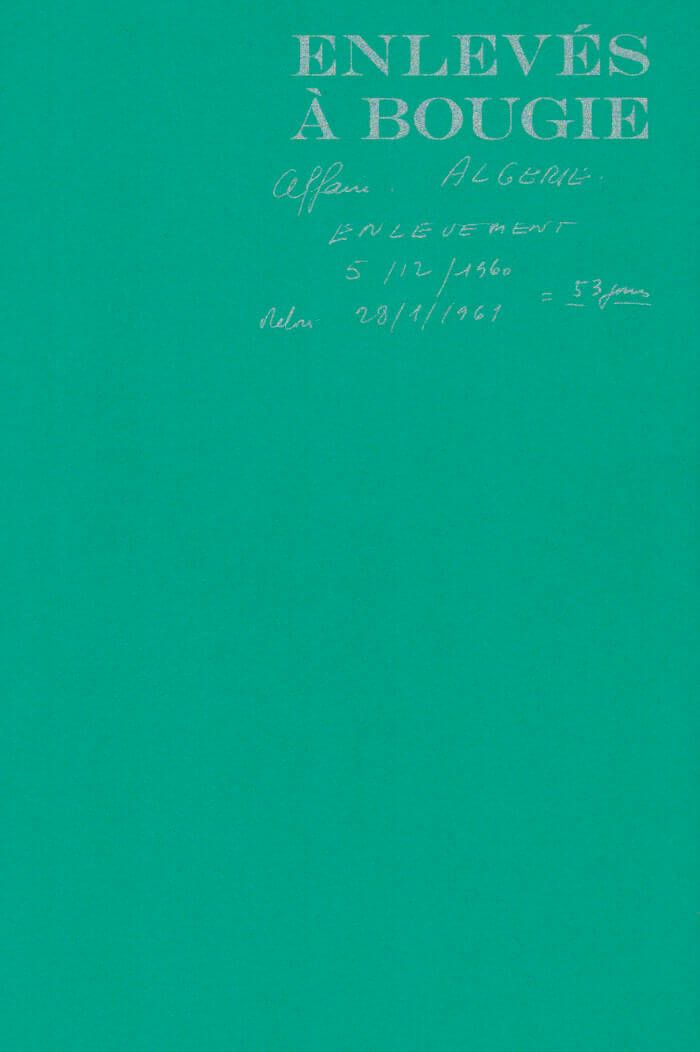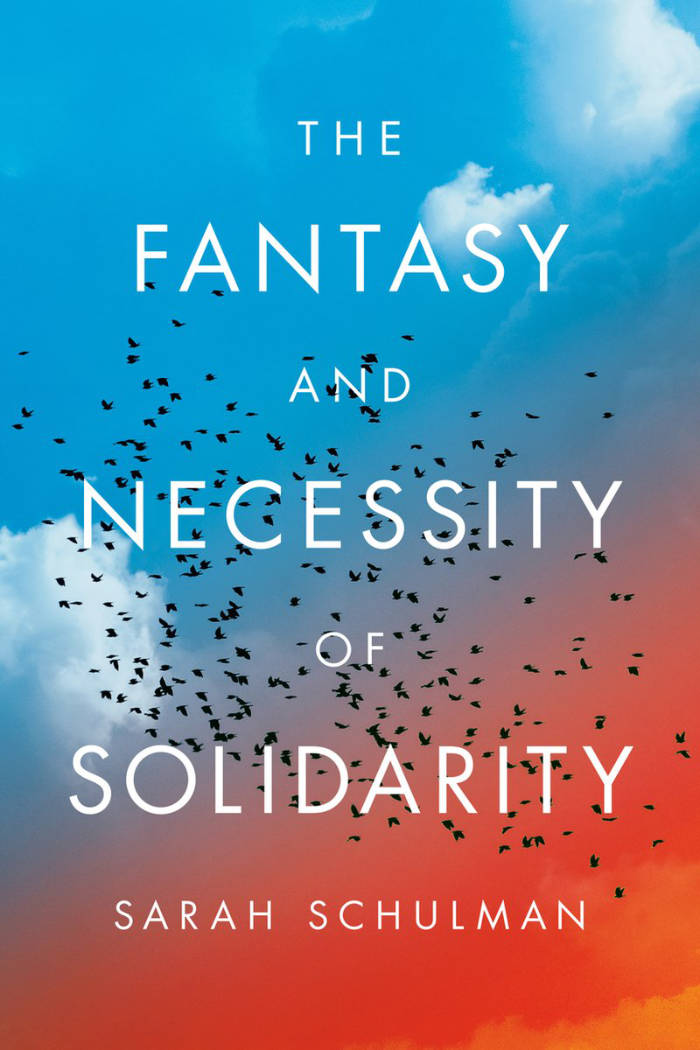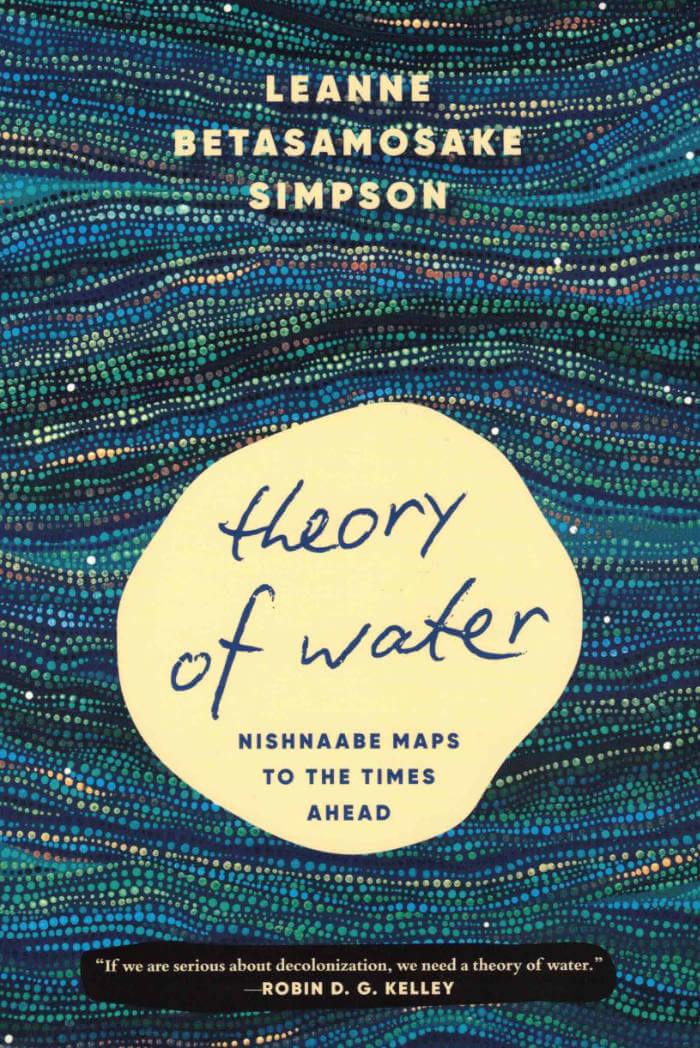
Enlevés À Bougie
Enlevés à Bougie is a visual archive compiling documents from the kidnapping of a French state employee during the War of Independence, in 1960, Bougie, Algeria.
Language: French

Enlevés à Bougie is a visual archive compiling documents from the kidnapping of a French state employee during the War of Independence, in 1960, Bougie, Algeria.
Language: French

“RUSTIQUE” is an artist book created by Nicola Godman. This book is sprung out of a residency in September 2021 at Hôtel Chevillon, a former Scandinavian artist colony in Grez-sur-Loing, France. Barbizon, the village where the painter Jean-François Millet (1814–1875) lived and died, is located 20 km away from there. The book interweaves the life and work of Millet with Godman’s photographs, drawings and personal anecdotes.
“RUSTIQUE” wishes to put forward the artistic gaze towards rural life by artists who themselves are born peasants. Nicola Godman (b. 1989, Rute) is an artist working with photography, video, books and stories, currently based in Stockholm, Sweden. Having grown up on an organic dairy farm, she is researching depictions of rural life in art history and contemporary culture.

From award-winning writer Sarah Schulman, a longtime social activist and outspoken critic of the Israeli war on Gaza, comes a brilliant examination of the inherent psychological and social challenges to solidarity movements, and what that means for the future.
For those who seek to combat injustice, solidarity with the oppressed is one of the highest ideals, yet it does not come without complication. In this searing yet uplifting book, award-winning writer and cultural critic Sarah Schulman delves into the intricate and often misunderstood concept of solidarity to provide a new vision for what it means to engage in this work—and why it matters.
To grapple with solidarity, Schulman writes, we must recognize its inherent fantasies. Those being oppressed dream of relief, that a bystander will intervene though it may not seem to be in their immediate interest to do so, and that the oppressor will be called out and punished. Those standing in solidarity with the oppressed are occluded by a different fantasy: that their intervention is effective, that it will not cost them, and that they will be rewarded with friendship and thanks. Neither is always the case, and yet in order to realize our full potential as human beings in relation with others, we must continue to pursue action towards these shared goals.
Within this framework, Schulman examines a range of case studies, from the fight for abortion rights in post-Franco Spain, to NYC’s AIDS activism in the 1990s, to the current wave of campus protest movements against Israel’s war on Gaza, and her own experience growing up as a queer female artist in male dominated culture industries. Drawing parallels between queer, Palestinian, feminist, and artistic struggles for justice, Schulman challenges the traditional notion of solidarity as a simple union of equals, arguing that in today’s world of globalized power structures, true solidarity requires the collaboration of bystanders and conflicted perpetrators with the excluded and oppressed. That action comes at a cost, and is not always effective. And yet without it we sentence ourselves to a world without progressive change towards visions of liberation.
By turns challenging, inspiring, pragmatic, and poetic, The Fantasy and Necessity of Solidarity provides a much-needed path for how we can work together to create a more just, more equitable present and future.

Douglas Oliver (1937–2000) and J. H. Prynne (b. 1936) are two of the most original and ambitious poets of the contemporary era. Eschewing the conservativism of mainstream postwar British verse and embracing influences from America and Europe, each developed their craft through continuous correspondence and exchange as part of the febrile scene of poetical community and contestation that emerged in Cambridge in the 1960s. Their works over the following decades exhibit frequent shifts in form and style, from Prynne’s radical transformation and dispersal of the lyric tradition to Oliver’s adaptation of dream visions and medieval-inspired verse satires.
Their letters are a record of both the high stakes and playful experiments that constitute the writing lives of two singular poets determined not just to engage with modern political and social life during decades of crisis and upheaval, but to contribute through the circulation and publication of poetry to what Oliver calls “a community of political ethic.” Over the course of more than thirty years of friendship and mutual appreciation, the motivations for, and consequences of, their poems are constantly worked through, tested out, evaluated, and contradicted, always with a view to what the poetry means for the other, for the poetical communities they inhabit, and for the life of poetry itself.
This volume collects for the first time the majority of Oliver and Prynne’s correspondence, allowing new insights into the literary, political, and historical contexts of their lives and writing. An introduction, notes, and appendices provide a scholarly apparatus to situate Oliver and Prynne among the poets and publishers with whom they worked and socialized, and to identify and expand upon their frequent references to an enormous range of source material and reading matter.
“The correspondence between J. H. Prynne and Douglas Oliver is gripping and illuminating, brilliantly edited and completely absorbing. Two great poetic intelligences respond to each other’s work and to the society around them, thinking through the issues at stake in their poetic practice, their differences in approach, the different worlds they inhabit, their shared commitment to writing poetry and their admiration of each other’s work. The letters, complex as their matter can be, repay repeated reading; taken together, over a period of 33 years, they chart the context and creation of some of the most significant work in late twentieth-century poetry. This is an utterly engaging volume, and should be read by anybody interested in poetry and its place in the contemporary world.”—Ian Patterson
“For writers who welcome each other as peers, the exchange of letters is the spontaneous moment of exposure, the drawing out of selves. It is thinking in mutuality. In this thoughtfully edited and carefully, even beautifully, presented correspondence between Douglas Oliver and J. H. Prynne, two of the preeminent poets of the ‘British Poetry Revival’ of the post-World War II generations, we witness two writers of immense gifts thinking with each other, coming alive to thought and, ultimately, a shared world or community of wish. There is life, there is death; there is grief, there is anger – and love – but always there is a seeking, an attempt to arrive at a language for our worlds. Henceforth, one cannot imagine reading the work of either Oliver or Prynne without this correspondence and all that it offers in openings onto what Oliver himself saw as ‘the poet’s full performance [which] is the whole life’s work.’ It is a glimpse into an athanor of poetic creation.”—Michael Stone-Richards

Quinn Chen, Kira Simon-Kennedy and 1 more
This publication spans a decade of resilient artists and collectives in, around, and about China and the greater Sinosphere. Composed of essays, images, conversations, and projects, Shifting the Angle of Shine documents innovative tactics of artists and collectives as they weave relationships of mutuality and solidarity to thrive through the cracks.
Shifting the Angle of Shine explores how artists experiment with practices ranging from idiosyncratic business models to counterfeit and mimicry as tools for cultural change, from DIY collectives searching for stability to artists developing new ways to dance around the restrictive pressures of a capitalistic mainstream, and much more. In bringing these artists together to speak and lay compiled in this book, we ask ourselves: what kind of spaces are necessary to incubate productive conversations in an art world prone to creating destabilizing conditions?
Spanning the art nonprofit's decade of existence, a lot of the work has been documented in fragmented ways over the internet, on social media accounts, and in the memories of those there in person. Through materializing this project, this publication hopes to not only shine light on the work of some artists and collectives we admire, but also to archive their stories, processes, and methodologies that should be passed on.

Hourja Bouteldja, Alain Brossat
Alain Brossat est ex-militant de la LCR ancré dans une lecture anti-impérialiste de la politique. Houria Bouteldja est la cofondatrice du QG Décolonial et une figure de l'antiracisme politique. Dans cet entretien exigeant, les deux penseur·ses et militant·es clarifient leurs divergences et leurs convergences autour de la religion, du racisme, de l'État, du fascisme et de l'impérialisme. Alors que ces questions clivent celles et ceux qui luttent pour l'émancipation, rendant parfois les discussions impossibles, les deux auteur·ices reviennent sur leurs parcours politiques et philosophiques, sans pour autant feindre le consensus de leurs héritages politiques. Entretien coordonné par Marianne VL Koplewicz.

A genre-bending exploration of that most elemental force—water—through Indigenous storytelling, personal memory, and the work of influential artists and writers.
For many years, Leanne Betasamosake Simpson took solace in skiing—in all kinds of weather, on all kinds of snow across all kinds of terrain, often following the trail beside a beloved creek near her home. Recently, as she skied on this path against the backdrop of uncertainty, environmental devastation, rising authoritarianism and ongoing social injustice, her mind turned to the water in the creek and an elemental question: What might it mean to truly listen to water? To know water? To exist with and alongside water?
So began a quest to understand her people's historical, cultural, and ongoing interactions with water in all its forms (ice, snow, rain, perspiration, breath). Pulling together these threads, Leanne began to see how a "Theory of Water" might suggest a radical rethinking of relationships between beings and forces in the world today. In this inventive work, Simpson draws on Nishnaabeg origin stories while artfully weaving the work of influential writers and artists alongside her personal memories and experience—and in doing so, reimagines water as a catalyst for radical transformation, capable of birthing a new world.
Theory of Water is a resonant exploration of an intricate, multi-layered relationship with the most abundant element on our planet—one that, as Simpson eloquently shows, is shaping our present even as it demands a radical rethinking of how we might achieve a just future.